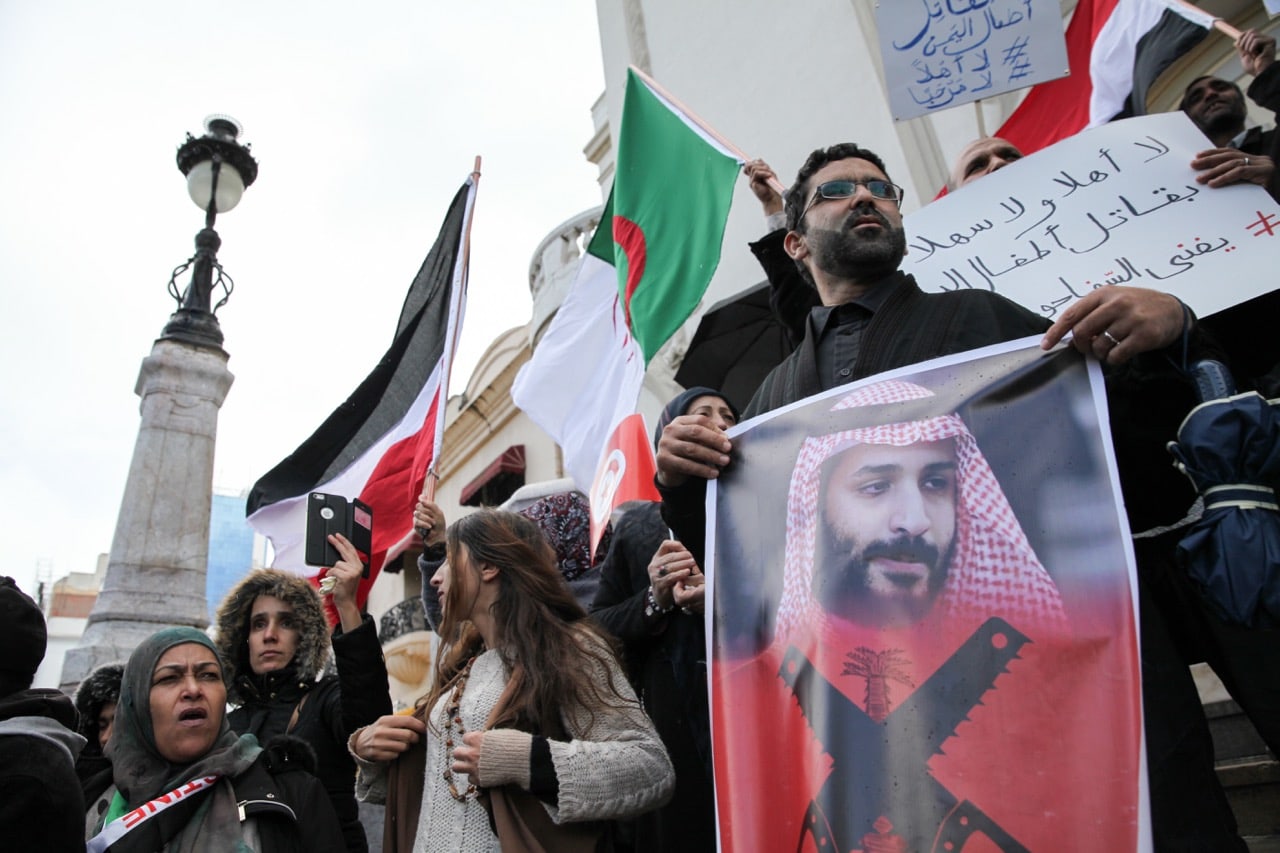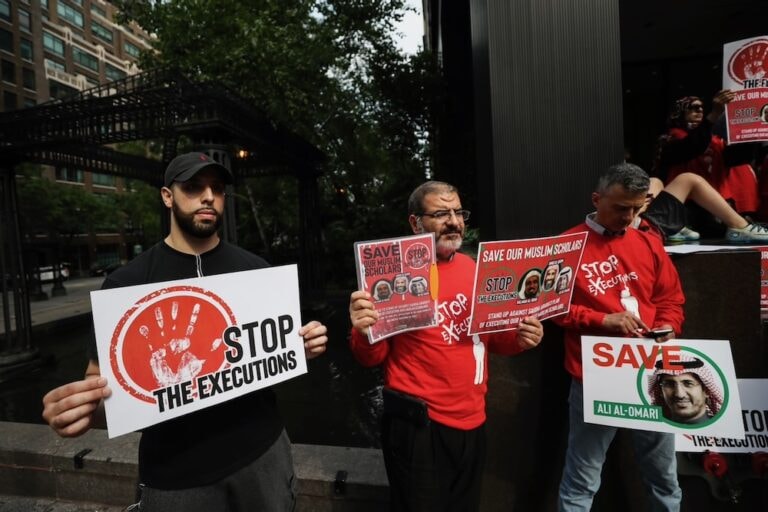"While the world is seeking answers to the savage murder of Jamal Khashoggi, the fate of women and human rights activists in Saudi prisons continues to hang in the balance."
This statement was originally published on hrw.org on 20 November 2018.
Informed sources say that Saudi interrogators tortured at least three of the Saudi women activists detained beginning in May 2018, Human Rights Watch said today. The reports allege that torture by Saudi authorities included administering electric shocks, whipping the women on their thighs, and forcible hugging and kissing, Human Rights Watch said today. The sources were concerned that they and the activists would suffer reprisals if the women were identified publicly.
Saudi Arabia should immediately and credibly investigate the allegations of abuse in detention. The authorities should publicly guarantee the safety of all detained activists, allow the detained women unfettered access to lawyers and family members, provide evidence of their well-being, and release those jailed solely for peacefully advocating reform. Saudi Arabia’s allies, and major car companies, should call on Saudi authorities to unconditionally release women’s rights activists detained for their role in the right to drive campaign and for advocating other freedoms.
“Any brutal torture of Saudi women activists would show no limit to the Saudi authorities’ campaign of wanton cruelty against critics and human rights activists,” said Michael Page, deputy Middle East director at Human Rights Watch. “Any government that tortures women for demanding basic rights should face withering international criticism, not unblinking US and UK support.”
The sources say that masked Saudi interrogators tortured the women during the initial stages of interrogation, but it was unclear whether they were seeking to force the women to sign confessions or merely to punish them for their peaceful advocacy. Following the interrogations, sources said, the women showed physical signs of torture, including difficulty walking, uncontrolled shaking of the hands, and red marks and scratches on their faces and necks. At least one of the women attempted to commit suicide multiple times, the sources said.
The crackdown on women’s rights activists began just weeks ahead of the much-anticipated lifting of the driving ban on women on June 24, a cause for which many of the detained activists had campaigned. While some were quickly released, others remain detained without charge. They include Loujain al-Hathloul, Aziza al-Yousef, Eman al-Nafjan, Nouf Abdelaziz, Mayaa al-Zahrani, Samar Badawi, Nassima al-Saada, and Hatoon al-Fassi, all women’s rights activists, as well as male supporters of the movement, including Ibrahim al-Modaimeegh, a lawyer; Abdulaziz Meshaal, a philanthropist; and Mohammed Rabea; a social activist.
Authorities accused several of those detained of serious crimes, including “suspicious contact with foreign parties.” Government-aligned media outlets have carried out an alarming smear campaign against them, branding them “traitors.” The Saudi newspaper Okaz reported that nine of those detained will be referred for trial to the Specialized Criminal Court, originally established to try detainees held in connection with terrorism offenses. If convicted, they could face up to 20 years in prison.
The public media defamation campaign against the women contravened Saudi Arabia’s longstanding policy of not publishing names of criminal suspects in pre-trial detention. While the peaceful activists, with names and photos, were smeared and defamed, pro-government media have not identified the people arrested for their alleged involvement in Jamal Khashoggi’s murder.
Dr. al-Fassi, a renowned scholar and associate professor of women’s history at King Saud University, was one of the first women to acquire a Saudi driver’s license. Saudi authorities arrested her just days before lifting the ban. Numerous other women’s rights activists have since been placed under travel bans. On November 17, the Middle East Studies Association of North America awarded al-Fassi the MESA Academic Freedom Award for 2018.
Saudi women’s rights activists have petitioned government authorities to reform discriminatory laws and policies and have sought to change societal attitudes. While the government has recently introduced limited reforms, including allowing women to enter some professions previously closed to them and lifting the driving ban, the male guardianship system, the main impediment to the realization of women’s rights, remains intact.
Under this system, women must obtain permission from a male guardian – a father, brother, husband, or even a son – to travel abroad, obtain a passport, enroll in higher education, get a life-saving abortion, be released from a prison or shelter, or marry.
The new allegations come as Saudi Arabia faces increasing scrutiny over the killing of Khashoggi. On November 15, the United States announced sanctions against 17 Saudi men allegedly involved in Khashoggi’s killing, including Crown Prince Mohammad bin Salman’s recently fired adviser and enforcer Saud al-Qahtani, who according to media reports directed online campaigns against Saudi critics and is known in diplomatic circles as the “prince of darkness.”
“While the world is seeking answers to the savage murder of Jamal Khashoggi, the fate of women and human rights activists in Saudi prisons continues to hang in the balance,” Page said. “World leaders should call on Mohammad bin Salman to end the campaign against domestic critics, and other countries should stop arming Saudi Arabia as long as it continues its unlawful attacks in Yemen.”



